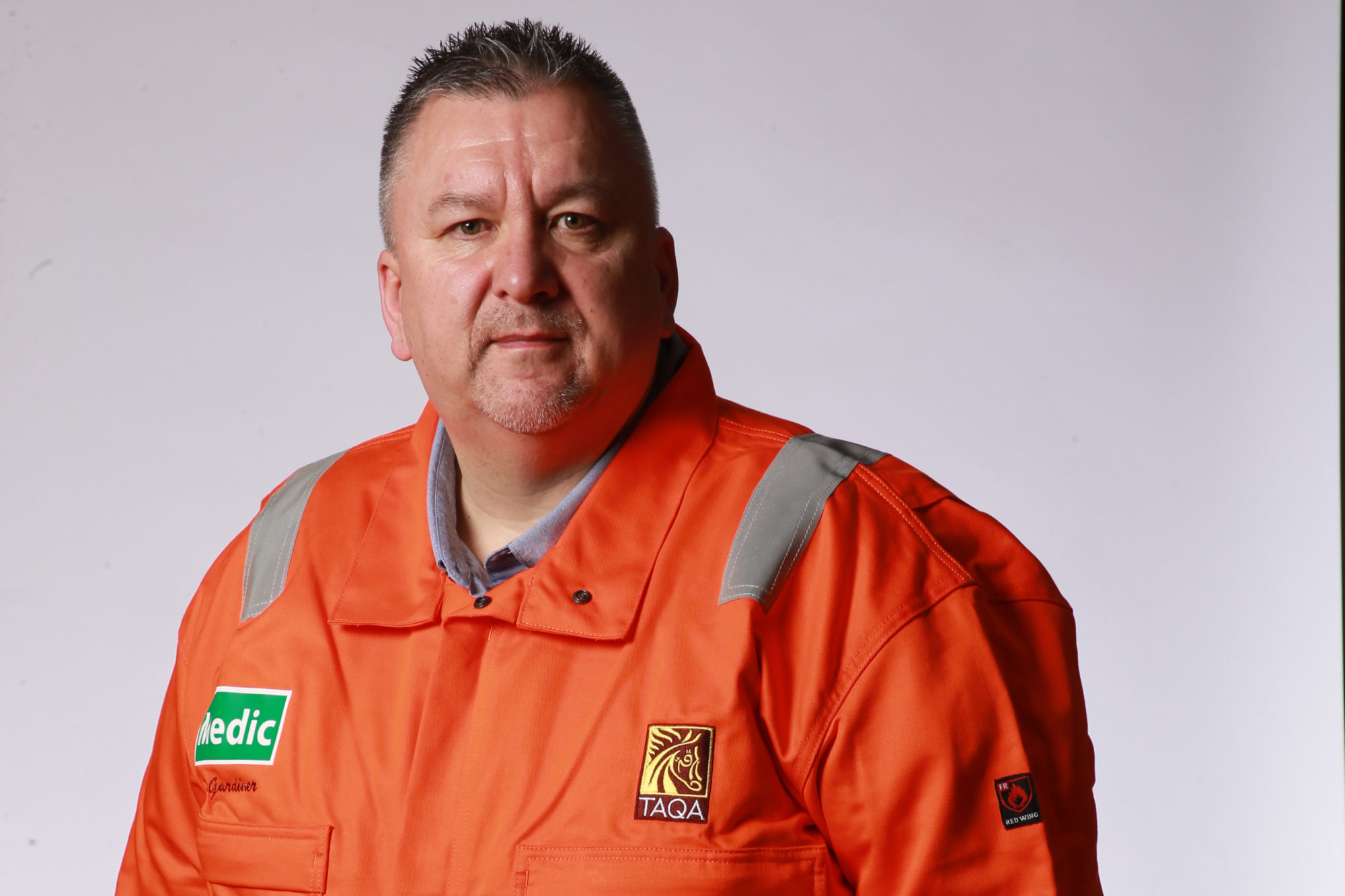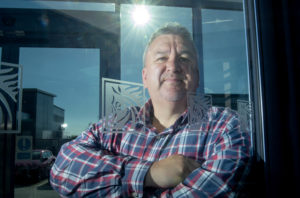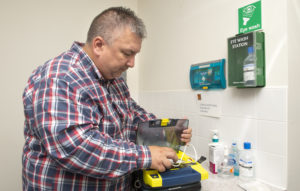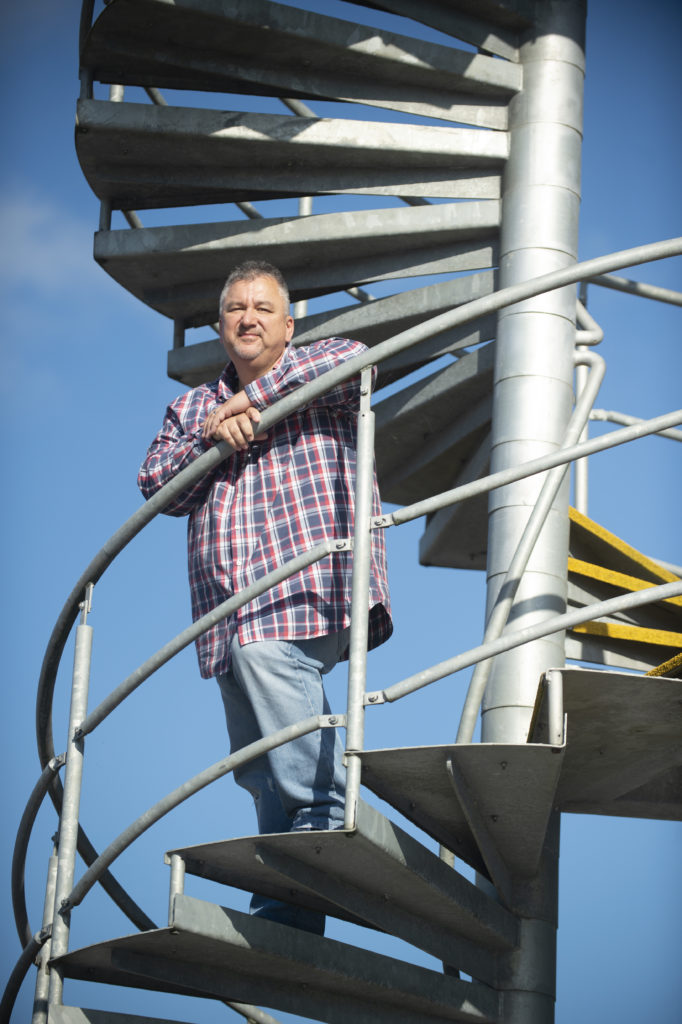Bob Gardiner

Bob Gardiner works as an Offshore Medic and Occupational Health and Safety Advisor in the oil and gas industry. Employed by TAQA, he is he is based on the Eider platform, 184 kilometres north east of Shetland.
If I look back on it now, I think I fell into nursing – I had no vision for what I wanted to do when I left school. I spent a summer employed as a nursing assistant working with people with learning disabilities in Aberdeen. The matron asked if I had ever considered doing my nurse training, the next thing I knew I was at Foresterhill College in Aberdeen. Two months after becoming a Registered Nurse in Learning Disabilities, I was enrolled at Fife College of Nursing and Midwifery in Kirkcaldy where I did my post registration general nursing.

I worked for a few years in the health service before a nursing friend who was working as an offshore medic asked if I had ever considered a move into the oil and gas industry. I’ve now spent 33 years working offshore. The role has extended beyond being the medic and doing the primary health care – the colds, the coughs and so on. It’s moved into occupational health and it’s very much a preventative role. I’ve gained a diploma in occupational health nursing through Robert Gordon University (RGU) and I’m now health, safety and environmental advisor on the platform.
My role as a medic is to provide primary health care and emergency services to more than 90 people working on the platform. Health care delivery in the oil and gas industry is challenging but exciting; I am passionate about my role and I fight to promote health in the workplace at every opportunity.
 A medic’s other role is health risk management. We work in an environment where there is the potential for the workforce to be exposed to multiple health hazards – these include biological and chemical hazards or physical ones such as noise and vibration, or psychological through long working hours or being away from loved ones for an extended period of time.
A medic’s other role is health risk management. We work in an environment where there is the potential for the workforce to be exposed to multiple health hazards – these include biological and chemical hazards or physical ones such as noise and vibration, or psychological through long working hours or being away from loved ones for an extended period of time.
I’m looking after everything from asbestos to radiation – before guys even go to work, I’m doing a risk assessment, work-site visits, monitoring for chemicals and gases. It’s all about prevention.
As the only team member with a specialist Occupational Heath qualification I have been able to share my knowledge, experience and offer practical experience to the medic team. Since joining TAQA I strive for continuous improvement and ensure our health risks are well managed. I have supported and been a lead for the transfer for management of responsibility from the safety team to the health team. Medics now manage the risks for their platform; they complete risk assessments, implement health controls and offer health surveillance.

It really is coming back to that concept of caring for people and the responsibility you have for them. We have almost 100 people on board the platform, probably around 60 you would call the core crew and they are your extended family. The platform I am on is smaller, and that community embraces anyone that comes on board. Although I am the safety advisor and look after 90 others on the platform, I actually have 90 looking after me too.
The key is having the care and compassion, it underlines all roles in community nursing. The most satisfying element of the job is knowing you’ve done your best for everybody. I can look back and know I’ve saved lives and made a difference to people.
It really struck me that nobody knows who the offshore medics are and what we do. Everybody thinks the medic hands out headache pills and Lemsips – that is a part of the job, but when things really go wrong – when you’ve got somebody having a cardiac arrest – there’s a multitude of skills that just aren’t appreciated.
Offshore medics are a forgotten health care provider and my vision is that they are recognised for the work that they do in healthcare. I am passionate about my role and the work that my offshore colleagues carry out as lone practitioners providing care in a challenging community setting in a remote hazardous environment.

Many offshore medics are registered nurses, but not all. Setting off on my Queen’s Nurse journey, I had hoped to conduct a questionnaire study to explore this issue further with the aim of better informing the debate around professionalism of offshore medics and to promote their cause as a group of health care workers.
Within my own company, an in-depth review was conducted with input from the offshore medics and a new training matrix was developed and a framework for revalidation. This not only satisfies the statutory requirements of offshore legislation but offers the opportunity to our medics to reflect on their practice, identify areas for improvement, ensure personal development and ultimately aims to deliver safe, evidence-based care.
I would like to help influence improvement in this area within the wider medic sphere and hope to have a positive input into the debate on the professional standing of offshore medics by completing evidence-based research. This has now evolved into an academic research project and I now intend to undertake a Masters degree in research with RGU to look at offshore medics working on the UK continental shelf and to report on an analysis of the findings.